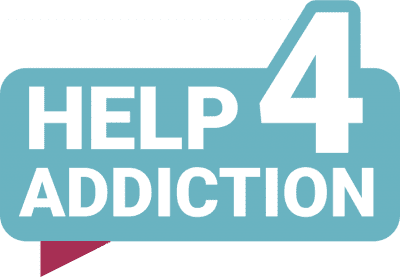- Alcohol Addiction
CALL OUR 24/7 HELPLINE ON 0203 955 7700
- Drug Addiction
CALL OUR 24/7 HELPLINE ON 0203 955 7700
- Prescription Drugs
CALL OUR 24/7 HELPLINE ON 0203 955 7700
- Helping Others
CALL OUR 24/7 HELPLINE ON 0203 955 7700
- Rehab
CALL OUR 24/7 HELPLINE ON 0203 955 7700
- Locations
- Blog
- Contact
Self-Assessment
Quick Access
If you are battling liquor addiction, it’s hard to perceive it as an issue. But, as a rule, drunkards ordinarily need tools to know when their alcohol intake gets out of control. Consequently, the question which ordinarily emerges is, “Am I a drunkard?”
When undertaking the questionnaire, you should identify how many ‘yes’s you get for an answer:
- 1-3: This shows a gentle substance to alcohol abuse.
- 4-6: This shows moderate alcohol abuse.
- Six and above: This shows habit/severe substance use problems.
By using this guide, you can develop a plan that will help you recover from alcoholism. The accompanying questions can serve as an aide. We at Help4addiction use evidence-based treatment methods to help our patients achieve life-long sobriety. Please feel free to contact us to get a full medical assessment and a treatment plan.
Do I often consume alcohol more than I have planned?
During occasions such as parties, most people can have a couple of drinks over a short period. However, individuals battling with liquor misuse may forget about the number of drinks they have had.
Consuming alcohol regularly often increases your alcohol tolerance, which can lead to dependence. For this reason, the more you consume alcohol, your body changes, and you’re more likely to take more drinks to feel the same effects. As a result, alcoholism may put your health at a greater risk.
If you find out that the amount of alcohol intake is more than what you had intended to consume, then the answer is “Yes,” you have consumed more alcohol than you had planned to take.
Note: You can call us on 0203 955 7700, and our professionals are dedicated to helping you overcome alcohol abuse with evidence-based treatment plans.
Personalised Support For Your Recovery
We provide personalised support and resources for addiction recovery. Take the first step towards a brighter future today.
Do I have alcohol urges and cravings?
Cravings are a significant symptom of alcoholism. Besides, cravings are signs of alcohol withdrawal, and you may often find yourself looking for an opportunity to consume alcohol. In addition, some cravings are triggered by friends and family members who drink alcohol more often, visiting bars and clubs, and some stressful situations arouse alcohol cravings. Whether the triggers are positive or negative, they can lead to uncontrollable urges to consume alcohol.
Higher alcohol cravings are a significant contributor to a relapse, and they should be handled appropriately.
Do I consume alcohol in risky situations?
Alcohol abuse victims usually spend much of their time taking alcohol even when the situation is dangerous. The following can be risky alcohol consumption situations:
- Consuming alcohol before driving
- Drinking alcohol before operating machinery
- Drinking alcohol before engaging in a hazardous sport or activity.
Too much alcohol intake can also cause you to engage in casual sexual behaviours. Also, alcohol abuse can make you participate in activities that could have been avoided leading to injuries, body illnesses and even death.
Does consuming alcohol and hangovers affect my responsibilities?
Much time is spent while drinking alcohol recovering from hangovers. For this reason, you may invest much energy and time taking alcohol with your friends or peers and miss schoolwork or daily tasks.
The following are consequences of too much alcohol intake:
- Inability to pay your bills
- Physical abuse
- Arguments between couples
- Infidelity
- Decreased sex drive
- Divorce
If you can’t stop consuming alcohol despite these consequences, you have an alcohol abuse problem, and you should seek help immediately.
Have alcohol effects reduced over time, or do I require more alcohol to have the same impact?
Standard alcohol misuse can result in a condition known as tolerance. Tolerance can make you consume a lot of alcohol to achieve the same effects as you previously did.
This means that alcohol has altered your brain functionality, and therefore, you can’t function with an alcohol intake.
Do I enjoy taking alcohol over other fun activities or hobbies?
Alcohol dependency will make you stop taking an interest in fun activities or hobbies that you once enjoyed. For example, a dynamic athlete might give up on an exciting activity since he invests almost all his time in consuming alcohol. Furthermore, an alcoholic might miss their children’s activities or an important event due to alcohol abuse.
Comparing and contrasting the time you spent taking alcohol and the time spent earlier without it can help you understand if alcohol use has negatively affected your fun activities.
Has alcohol abuse interfered with my relationships?
Alcohol addiction has a dangerous impact on your physical wellbeing and also on relationships. Alcohol abuse can put pressure on relationships like marriage. In addition, children, relatives, partners and co-workers can bear the consequences of a person’s slavery to alcoholism.
Having a partner who takes alcohol can make the marriage unbearable. In reality, when one partner is an alcoholic, that couple can experience a strained relationship which may affect the children.
As you continue with alcohol abuse, there will be less time for you to spend with your partner. Consequently, the emotional distance between you and your partner may develop and bring trouble to your home. When alcohol dependency becomes one of the main reasons that cause fights in a relationship, the conflict may lead to more alcohol consumption to reduce pressure.
Why have I not succeeded in quitting alcohol before?
The American Society of Addiction Medicine explains that alcohol abuse is a persistent condition that regularly brings about relapse.
The journey to quit alcohol can be tricky and proof to be impossible to some people. It takes willingness from the victim to stop alcohol and begin a new journey. You cannot wake up one day and decide to quit alcohol. Recovery is a slow process that requires patience and hard work, and you will eventually overcome addiction.
Please call 0203 955 7700, and seek assistance on alcohol abuse from an experienced advisor, and they will help you quit alcohol successfully.
Is my alcohol intake causing harmful effects?
Alcohol abuse can impact your body both physically and emotionally. Even though it is difficult to see how alcohol has affected your internal organs, it is crucial not to ignore signs of alcoholism. In most cases, adverse alcohol effects are not seen immediately until after a specific duration when it is hard to reverse the health problems caused by alcohol.
While every organ in your body can feel the effects of consuming alcohol, some are more vulnerable, like the brain, heart, liver, and pancreas. The best way to prevent health problems is to quit alcohol consumption with the help of a professional doctor. For example, as portrayed by the National Institute on Alcohol Abuse and Alcoholism, adverse consequences on the brain can affect your way of thinking and judgements. The following are the results of alcohol abuse on the body:
- Cardiovascular diseases
- Memory loss
- Liver disease
- Mood changes
- Respiratory infections
- Reduced breathing
- Impaired vision
- Cancer
- Ulcers
- Nerve damage
If you have been consuming a lot of alcohol consistently and seeing all these harmful effects arise, you may find excuses to avoid associating the issues with alcohol use. However, suppose you can relate the physical and mental effects and link them with your alcohol intake, and you do not stop alcohol consumption. In that case, you may be suffering from alcoholism or alcohol abuse.
Do I feel guilty after consuming alcohol?
After waking up after a night of drinking, you can recall all the fun activities such as dancing, laughing, and telling stories that you did. Suddenly, a feeling of embarrassment accompanies you, and you become guilty of what you did. Alcohol acts as a depressant and can affect how your brain functions. That’s why after a night or an occasion of alcohol intake that brought much joy and fun can be followed by a sense of guilt the following morning or when the alcohol wears off from your system.
What are the physical and mental symptoms that will arise if I quit alcohol consumption?
Some of the signs and symptoms of alcohol withdrawal include:
- Anxiety
- Nausea
- A sleeping disorder
- Weariness
- Behaviour change
- Gastrointestinal aggravations
- Expanded heartbeat
- Hyperthermia
- Quick unusual relaxing
- Fantasies
- Seizures
- Sweating
- Vomiting
If you have been consuming alcohol for a long time, these symptoms might be severe, making it hard for you to quit alcohol consumption. In addition, withdrawal from alcohol can lead to delirium tremens, resulting in confusion, seizures and even death.
If you experience the above withdrawal symptoms whenever you try to quit alcohol, you have most likely developed an alcohol addiction. Therefore, you may require to seek help from a doctor or visit a rehab centre for use as you start a new recovery journey.
If you find yourself struggling with alcohol abuse, the best thing is to seek treatment. You can call us on 0203 955 7700, and our professionals are dedicated to advising you and offering you a treatment plan.
Frequently asked questions
Why do I consume alcohol more than I am supposed to?
Why do I crave alcohol?
Why haven’t I succeeded in quitting alcohol?
Sources
- https://www.gov.uk/government/publications/local-alcohol-services-and-systems-improvement-tool/the-alcohol-clear-approach-to-system-improvement-excellence-in-preventing-and-reducing-alcohol-harm
- https://www.nhs.uk/conditions/alcohol-misuse/
- https://www.alcoholpolicy.net/2019/08/phe-update-clear-alcohol-self-assessment-tool-to-support-local-strategy.html
- GOV
About Author

Nicholas Conn
Nicholas Conn is a leading industry addiction expert who runs the UK’s largest addiction advisory service and is regularly featured in the national press, radio and TV. He is the founder and CEO of a drug and alcohol rehab center called Help4addiction, which was founded in 2015. He has been clean himself since 2009 and has worked in the Addiction and Rehab Industry for over a decade. Nick is dedicated to helping others recover and get treatment for drug and alcohol abuse. In 2013, he released a book ‘The Thin White’ line that is available on Amazon.
Request A Callback
Receive a callback, we’re ready to help you get on the road to recovery.
Related Alcohol Pages
24/7 Helpline Support
Don’t hesitate to reach out – we’re here to provide the support you deserve, anytime, day or night.


